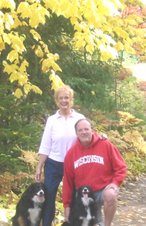Tuesday, June 26, 2007
The Fat Lady is Humming
Atop the agenda for congregations will be to assess the theological voices that have led us to disaster in the first place. One such voice demanding clear response is that of Mike Evans, the head of the “Jerusalem Prayer Team,” and cheerleader of the Apocalypse. Of course, such voices have always been present on the American scene. We have effectively dealt with them in the past. In fact, Evans may be self discrediting. His post Iraq vision is the theme of the New York Times best seller, The Final Move Beyond Iraq. What to do post Iraq? Attack Iran! He recommends stepping out of the frying pan into the fire! People of faith have something important to say about that sort of thinking.
It is not too early for faith communities to begin the conversation. Post Iraq reconciliation will be incubated starting now. Talking about the faith community’s response to the 9-11 tragedy might be a good starting point. What got us into trouble? How did faith communities aid and abet the disastrous Iraq response? What did faith communities do to ameliorate the same disaster. When you find consensus, take it to the next level. Invite resolutions, debates, conversations in your faith community and in the wider community. Publicize your conversation in local media. Build a Post Iraq agenda and circulate it.
Christian and Hebrew Congregations might contextualize these discussions with a review of the Iraq materials in their own scriptures. The Bible's Babylon is today's Iraq, a nation that was a key player in the Jewish history. The literature of the exile in Babylon can provide deep background to a conversation about Iraq. Of particular impact are the writings of Prophets Jeremiah and Daniel. The songs from a strange land in the Psalms and in the Song of the Three Young Men (Canticle 12, p. 88 in the BCP) can supplement the conversation.
Whatever approach you take, we will all benefit from forward movement toward reconciliation in the post Iraq period. The work of building a Post Iraq consensus cannot start too soon.
Saturday, June 23, 2007
Sunset on the Goose Season
Now, the Geese that are on the water have their broods, they will not leave the place, regardless of provocation. But the dogs haven't yet gotten the message. Any trip in the car has to be a goose chase. They take off on the job, even when they are walking where there are no geese! At least they have the memory and will be hot stuff next spring.
Milestones from the spring chase: Bridget had her first run in with a swan. (one of the tricks she fell for) Geese are scared, swans are not. They confront. I got her out of the water just before the old swan was ready to clobber her. The dogs quickly adjusted to their quarry shortly after that swan run in. They don't even mess with the ducks. That big old blue heron that haunts the pond is of no interest to them whatsoever. Even the sandhill cranes, as dramatic as they are, got nothing more than a passing note from the dogs.
So that was the season past. It was a lot of fun. Meanwhile, I need to find a way to keep the fat off of them. Mutton, anyone?
Saturday, June 16, 2007
Faith and T.V.: Buyer Beware
Analysis of television, its effects on our lives and the way it drives the choices we make, is a relatively recent undertaking. Pierre Bourdieu’s 1996 lectures, printed in a book entitled On Television, is one of these early attempts at analysis. That was 11 years ago! Fifty some years after the invention of t.v. we come to Al Gore’s book, The Assault on Reason. Gore starts his analysis by an examination of the disfiguring effects of television on our democratic institutions. But what has t.v. done to religion? Even the novice channel surfer is keenly aware of the myriad of channels that purport offer faith to its watchers. I believe that television is as corrosive to the practice of faith as it is to political health. Here is a short outline of the features that faux faith brings to the tiny screen.
One way conversation Television is not anything like like real talk. It is more like being targeted. It all comes one way, at you. In fact, television religionists aim their messages in the same way politicians target particular populations. At targeting, televised religion has been devastatingly effective. But faith happens "where two or three are gathered, in the context of a community. Faith is continually tested in the context of real human relationships. There, the faith involves persons and ideas that usually conflict, grate on the nerves. Here is the test of the Spirit to the test. (this sort of thing inhabits nearly every gathering in the biblical literature.) Television is a no community. Rather, the one way messages breed a kind of conformity and passivity that is the hallmark of the consumer age. Further this sort of Christianity, or Islam for that matter, is untested where people live. It has a synthetic quality to it.
Listen to the words of poet William Butler Yeats.
We had fed the heart on fantasy,
and the heart's grown brutal on the fare.
Such brutality, the companion to t. v. religion, is the hallmark of our time.
Monday, June 4, 2007
With Our Wind Knocked Out
James Arthur Kelsey
Bishop of
1952 - 2007
News of Jim Kelsey’s premature death comes as a crushing blow to friends and colleagues across the nation, indeed the globe. For those in
I want to lay Jim’s work along side the groundbreaking work of Miles Horton at the

